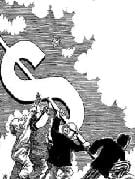Financial Crisis
Germany, France join U.K. in taxing banks

Britain slapped a £2-billion (US$3.1-billion) tax on bank balance sheets on Tuesday as the new government said the industry must pay the price for its part in the financial crisis.
"This was a crisis that started in the banking sector and the failures of the banks imposed a huge cost on the rest of society," British finance minister George Osborne said.
"So it is fair and right that in future banks should make a more appropriate contribution which reflects the many risks that they generate."
Germany, France and Britain issued a joint statement saying they aimed to coordinate planned banking levies to ensure there is a level playing field in the financial sector.
The new UK tax would raise at least £2-billion annually, which was less than some estimates and helped bank shares halve earlier losses after the announcement.
"As far as the hit to banks is concerned, it’s £2-billion rather than (earlier estimates of) £3-billion . It does seem to be a bit less. It’s a tad better (than expected)," said Mike Trippitt, analyst at Oriel Securities.
The tax was part of an emergency budget of harsh spending cuts and tax rises as the UK’s new coalition government aimed at bringing down a record peacetime deficit.
A bank levy had been expected to cost the industry between £1 billion and £5 billion , depending on its structure and scale.
By 1220 GMT Britain’s bank index was down 0.8%, having been down about 1.6% at the start of his speech.
Mr. Osborne said the levy would apply to balance sheets, with deductions made for Tier 1 capital and insured deposits and longer maturity funding. International banks with operations in Britain would also have to pay the levy.
It appears similar to a levy proposed by U.S. President Barack Obama in January. But that tax, which would charge 0.15% of net liabilities and aims would raise up to US$117-billion over 10 years, has been held up and may not be passed.
(Published by Financial Post – June 22, 2010)